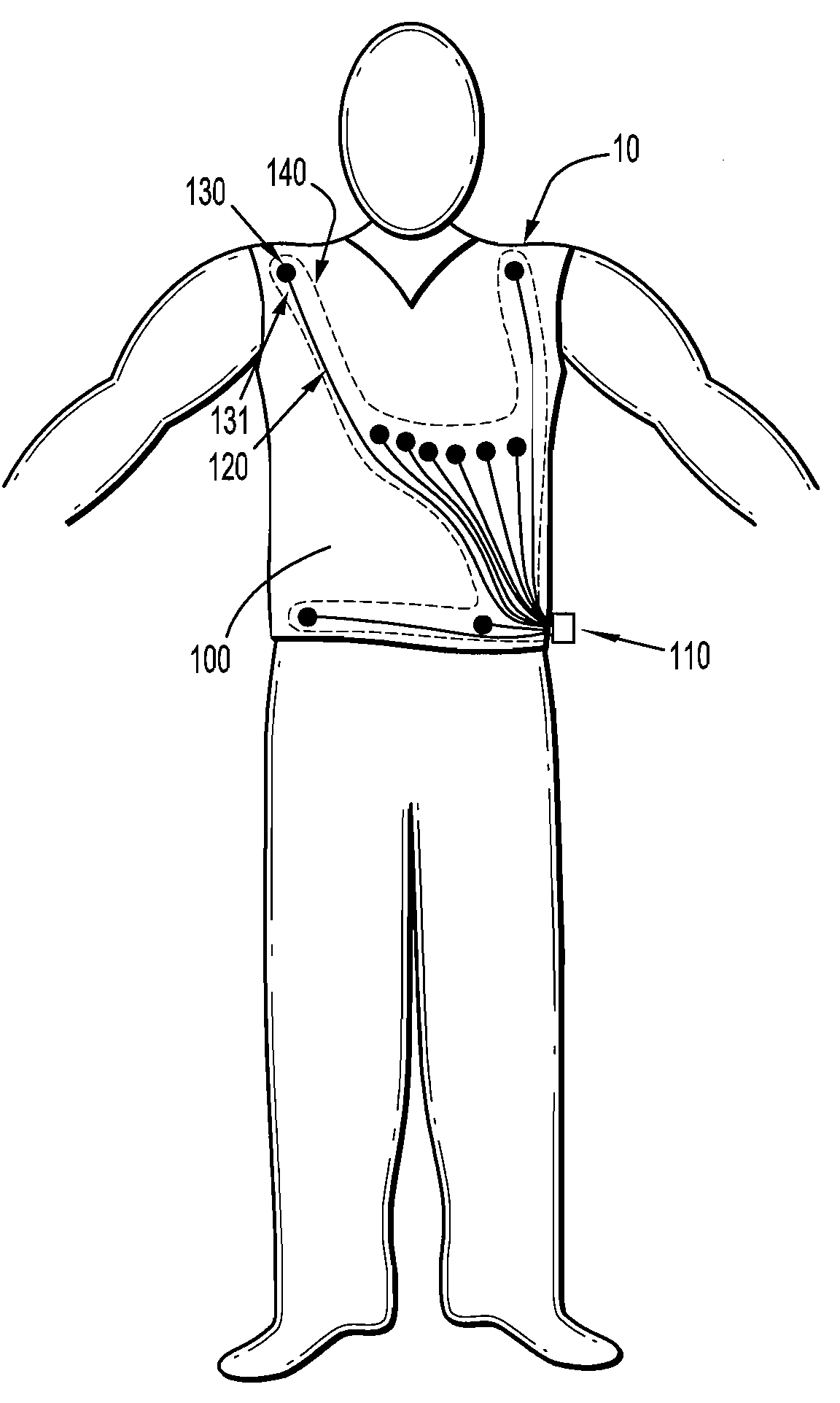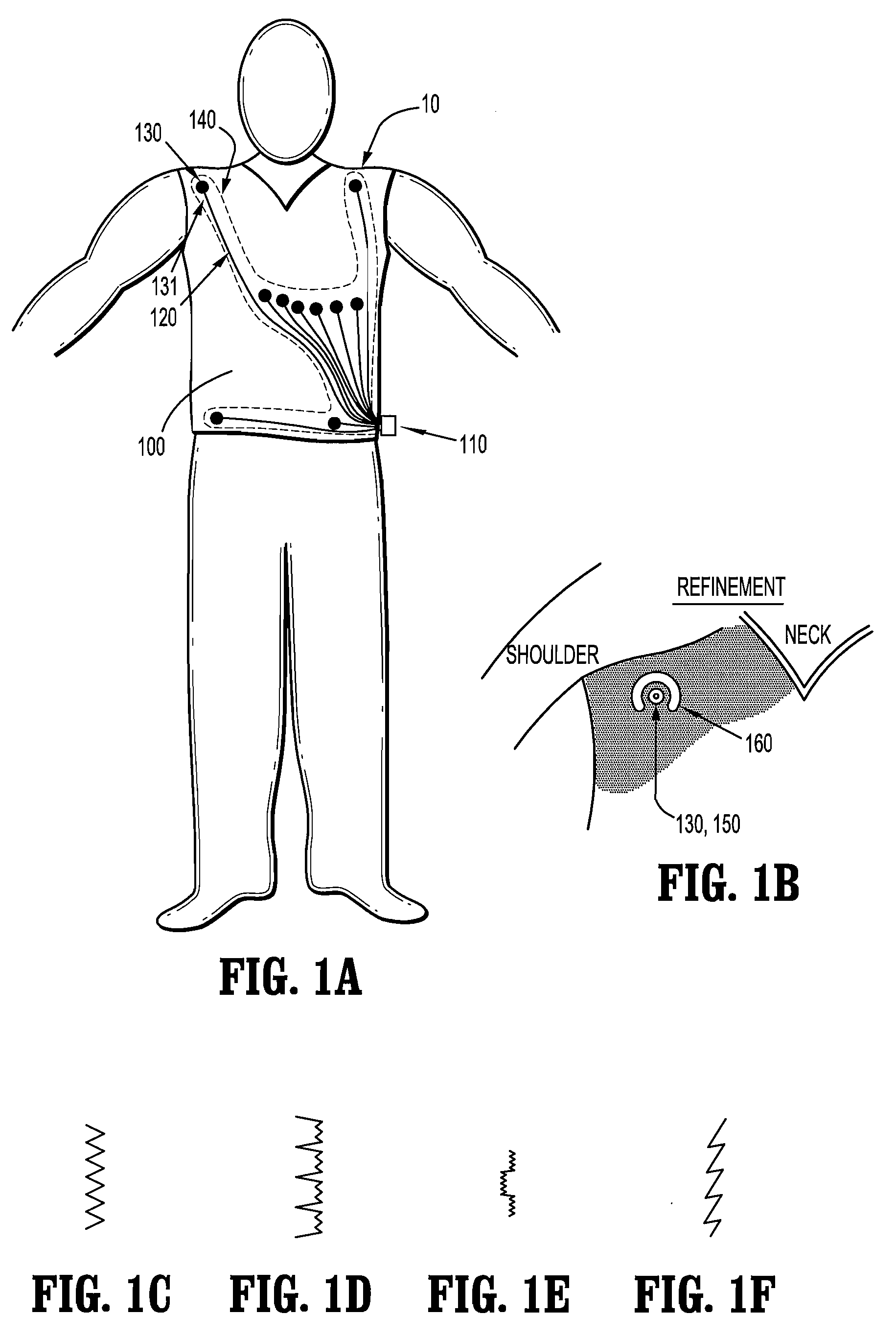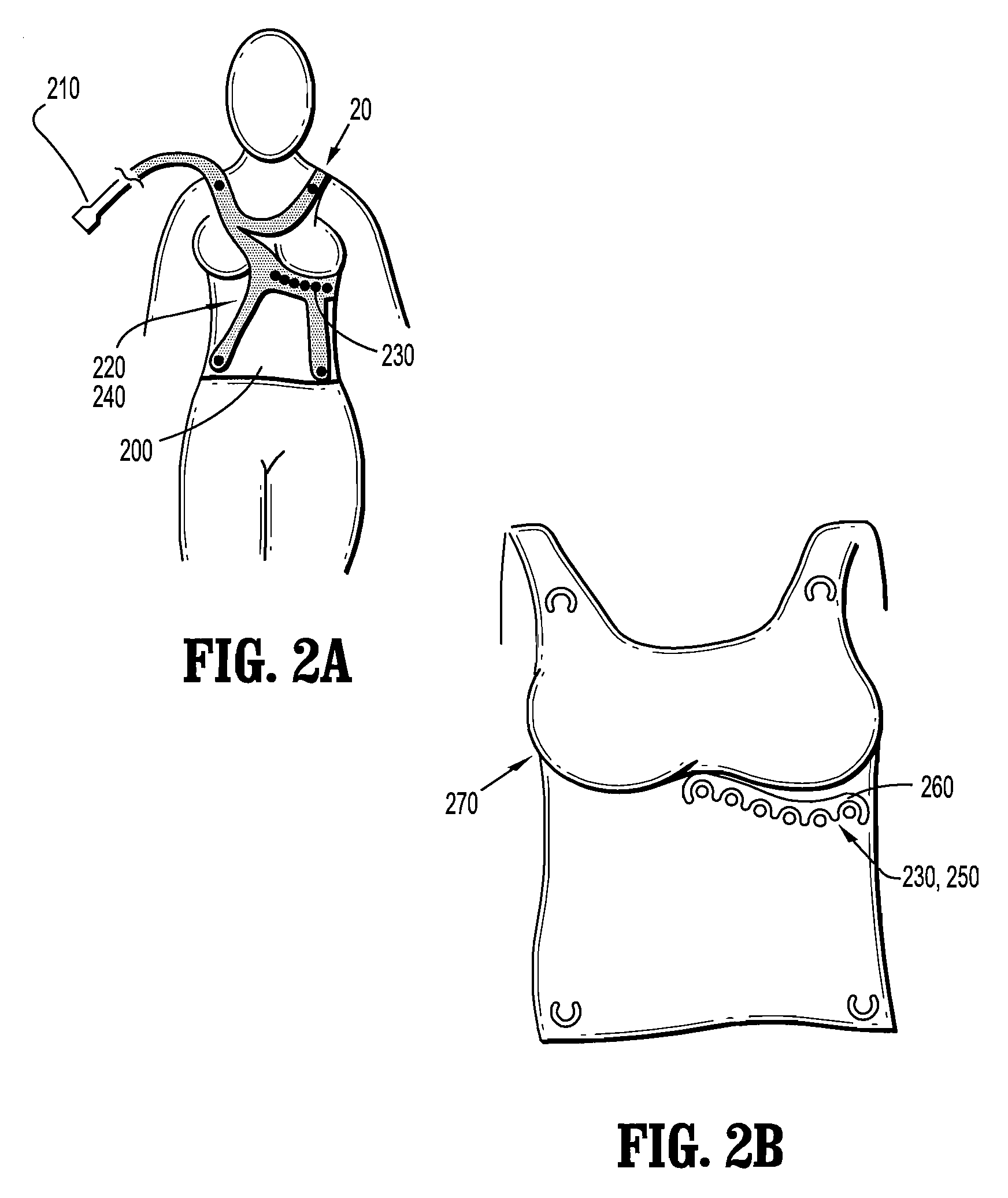Physiological sensor placement and signal transmission device
a technology of electrical signals and sensors, applied in the field of physiological sensor placement and signal transmission devices, can solve the problems of difficult to determine exactly which individual wires are to be connected, subject may experience discomfort, and limited movement of subject,
- Summary
- Abstract
- Description
- Claims
- Application Information
AI Technical Summary
Benefits of technology
Problems solved by technology
Method used
Image
Examples
Embodiment Construction
[0025]The attached figures illustrate exemplary embodiments of the present disclosure and are referenced to describe the embodiments depicted therein. Hereinafter, the disclosure will be described in detail by explaining the figures wherein like reference numerals represent like parts throughout the several views.
[0026]The exemplary embodiments of the apparatus disclosed herein are discussed in terms of performing a diagnostic or therapeutic procedure involving collecting or delivering electrical signals relative to a subject. Such procedures are inclusive of, but, not limited to electrocardiograph procedures, maternal and / or fetal monitoring, and a variety of signal based rehabilitative procedures. However, it is envisioned that the present disclosure may be employed with many applications including surgical, diagnostic, and related treatments of diseases and body ailments of a subject.
[0027]In the discussion that follows, the term “subject” refers to a human patient or other anima...
PUM
 Login to View More
Login to View More Abstract
Description
Claims
Application Information
 Login to View More
Login to View More - R&D
- Intellectual Property
- Life Sciences
- Materials
- Tech Scout
- Unparalleled Data Quality
- Higher Quality Content
- 60% Fewer Hallucinations
Browse by: Latest US Patents, China's latest patents, Technical Efficacy Thesaurus, Application Domain, Technology Topic, Popular Technical Reports.
© 2025 PatSnap. All rights reserved.Legal|Privacy policy|Modern Slavery Act Transparency Statement|Sitemap|About US| Contact US: help@patsnap.com



